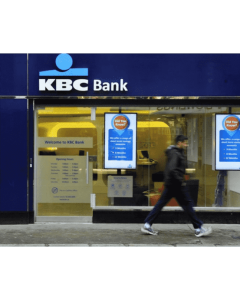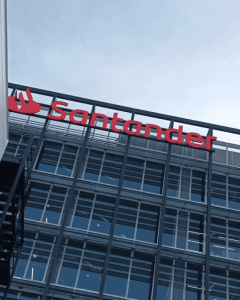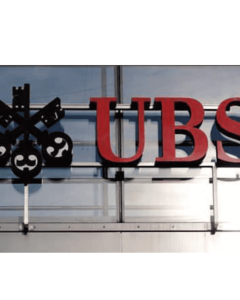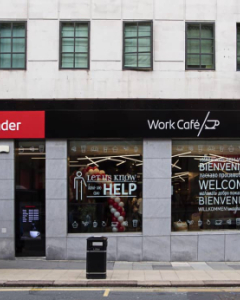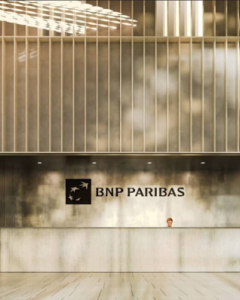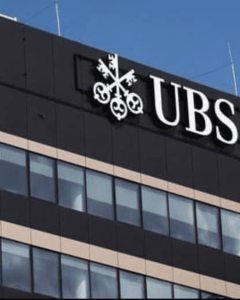Deutsche Pfandbriefbank AG Cuts US Loans Amid Crisis
Deutsche Pfandbriefbank AG reduces office and US loans, scrapping dividends and setting aside funds to brace for potential defaults.
In a strategic pivot reflective of the tumultuous landscape of the real estate sector, Deutsche Pfandbriefbank AG, a prominent German lender, has announced a significant recalibration of its lending practices, particularly in the United States. The bank, grappling with the repercussions of a property crisis that necessitated the suspension of its dividend and the allocation of hundreds of millions of euros as a buffer against potential defaults, is now poised to curtail its exposure to office and US loans.
The bank's new focus will be on sectors deemed more resilient, such as data centers, senior living facilities, and hotels, with a pronounced emphasis on European markets. In a notable shift, PBB plans to maintain a limited presence on the East Coast of the US while decisively withdrawing from lending activities on the West Coast. This strategic decision underscores PBB's significant vulnerability to the US office real estate market, which has been a focal point of concern among European banks amid fears of contagion from the beleaguered American property landscape.
As of June, the US constituted approximately 12% of PBB’s €29 billion ($31.7 billion) portfolio of performing real estate loans, while nearly half of the lender’s distressed real estate debt originated from this market. The office segment alone accounted for about 50% of PBB’s overall portfolio, a figure the bank aims to reduce to below 40% in the near future.
In the wake of these developments, PBB's shares experienced a decline of 3.5% at 12:22 p.m. in Frankfurt, contributing to an overall decrease of 5.9% for the year. Moody’s Ratings, in a recent report, articulated that the ongoing transition towards remote work and the surge in online shopping are likely to constrain new investments in office and retail spaces, relegating them to only the most coveted locations. The report further posited that new commercial real estate investments will increasingly gravitate towards sectors such as data centers and logistics properties.
In terms of shareholder returns, PBB has committed to distributing at least 50% of its profit after tax, alongside AT1 coupons, to its shareholders until 2027. Beyond dividends, the bank is also contemplating share buybacks as part of its capital management strategy.
PBB, which emerged in 2009 from the remnants of Hypo Real Estate—Germany’s most significant casualty of the financial crisis—has undergone a transformative journey. The German government divested much of its stake in PBB through a public listing in 2015, ultimately exiting completely in 2021. As the bank navigates these challenging waters, its strategic decisions will undoubtedly be closely scrutinized by investors and analysts alike, eager to discern the implications for its future trajectory in an ever-evolving market.
Deutsche Pfandbriefbank AG Cuts US Loans Amid Crisis
KBC Bank Recovers €800M in Customer Deposits
KBC Bank has regained more customers than lost post-Belgian State bonds, adding €800 million in deposits. Discover the details here.
KBC Bank has regained more customers than lost post-Belgian State bonds, adding €800 million in deposits. Discover the details here.
Read moreSantander UK Adjusts Mortgages After Rate Cut
In light of the Bank of England's 0.25% rate reduction to 4.75%, Santander UK announces significant changes to its mortgage offerings.
In light of the Bank of England\'s 0.25% rate reduction to 4.75%, Santander UK announces significant changes to its mortgage offerings.
Read moreUBS Launches Blockchain Pilot for Cross-Border Payments
Swiss bank UBS successfully pilots its blockchain-based UBS Digital Cash, aiming to enhance efficiency in cross-border transactions.
Swiss bank UBS successfully pilots its blockchain-based UBS Digital Cash, aiming to enhance efficiency in cross-border transactions.
Read moreSantander’s Profits Hit €9.309 Billion
Spanish financial group Santander reports €9.309 billion in profits for the first nine months of 2023, a 14% increase from last year.
Spanish financial group Santander reports €9.309 billion in profits for the first nine months of 2023, a 14% increase from last year.
Read moreBNP Paribas Reports Net Income Boost from Corporate Banking
BNP Paribas has recorded a notable increase in net income, fueled by strong performance in its corporate banking sector. Explore the details.
BNP Paribas has recorded a notable increase in net income, fueled by strong performance in its corporate banking sector. Explore the details.
Read moreASR Divests Knab to Bawag Group for €590 Million
ASR's strategic sale of Knab to Bawag Group marks a €590 million deal, with €100 million allocated for share repurchase to boost shareholder value.
ASR\'s strategic sale of Knab to Bawag Group marks a €590 million deal, with €100 million allocated for share repurchase to boost shareholder value.
Read moreUBS’s Asset Management Launches First Tokenized Investment Fund
UBS Asset Management has launched its inaugural tokenized investment fund, highlighting a significant trend in the evolving financial landscape.
UBS Asset Management has launched its inaugural tokenized investment fund, highlighting a significant trend in the evolving financial landscape.
Read moreSwiss National Bank Reports CHF62.5 Billion Profit
The Swiss National Bank (SNB) has generated a remarkable CHF62.5 billion profit in the first nine months of this year, reflecting robust financial performance.
The Swiss National Bank (SNB) has generated a remarkable CHF62.5 billion profit in the first nine months of this year, reflecting robust financial performance.
Read moreProfits Rise at Standard Chartered’s Wealth Arm
Standard Chartered's wealth division reports an 11% profit increase in Q3, fueled by a $1.5 billion investment to enhance services and capabilities.
Standard Chartered\'s wealth division reports an 11% profit increase in Q3, fueled by a $1.5 billion investment to enhance services and capabilities.
Read more



